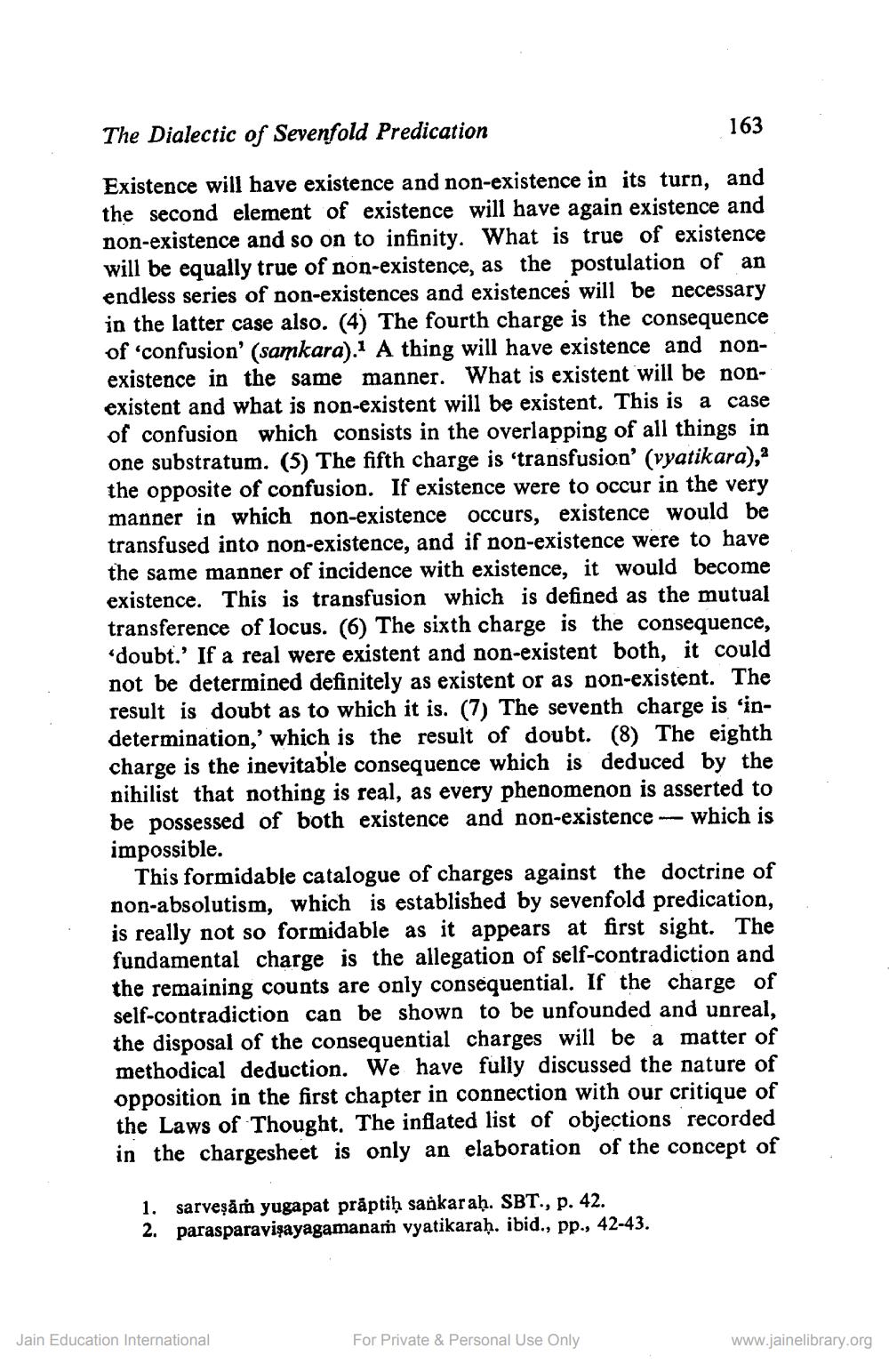________________
The Dialectic of Sevenfold Predication
163
Existence will have existence and non-existence in its turn, and the second element of existence will have again existence and non-existence and so on to infinity. What is true of existence will be equally true of non-existence, as the postulation of an endless series of non-existences and existences will be necessary in the latter case also. (4) The fourth charge is the consequence of 'confusion' (samkara). A thing will have existence and nonexistence in the same manner. What is existent will be nonexistent and what is non-existent will be existent. This is a case of confusion which consists in the overlapping of all things in one substratum. (5) The fifth charge is 'transfusion' (vyatikara), the opposite of confusion. If existence were to occur in the very manner in which non-existence occurs, existence would be transfused into non-existence, and if non-existence were to have the same manner of incidence with existence, it would become existence. This is transfusion which is defined as the mutual transference of locus. (6) The sixth charge is the consequence,
doubt.' If a real were existent and non-existent both, it could not be determined definitely as existent or as non-existent. The result is doubt as to which it is. (7) The seventh charge is 'indetermination, which is the result of doubt. (8) The eighth charge is the inevitable consequence which is deduced by the nihilist that nothing is real, as every phenomenon is asserted to be possessed of both existence and non-existence -- which is impossible.
This formidable catalogue of charges against the doctrine of non-absolutism, which is established by sevenfold predication, is really not so formidable as it appears at first sight. The fundamental charge is the allegation of self-contradiction and the remaining counts are only consequential. If the charge of self-contradiction can be shown to be unfounded and unreal, the disposal of the consequential charges will be a matter of methodical deduction. We have fully discussed the nature of opposition in the first chapter in connection with our critique of the Laws of Thought. The inflated list of objections recorded in the chargesheet is only an elaboration of the concept of
1. sarveşam yugapat prăptiḥ sankaraḥ. SBT., p. 42. 2. parasparavişayagamanam vyatikaraḥ. ibid., pp., 42-43.
Jain Education International
For Private & Personal Use Only
www.jainelibrary.org




